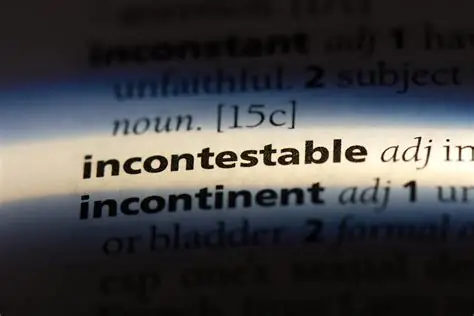The secret clause many Nigerians miss in their term life policies could be the one thing standing between your family and financial security. What if the policy you bought to protect your loved ones contains a hidden detail so critical that missing it could result in a denied claim when they need it most?
This isn’t a scare tactic—it’s a reality for some Nigerian families. They believe their term life insurance policy is a rock-solid promise, only for their loved ones to face claim rejection.
The reason? A clause hidden in plain sight that even honest policyholders overlook. This comprehensive guide reveals exactly what that clause is, how it works, and the simple steps to ensure your policy pays out when it matters most.
What is the Contestability Clause in Nigerian Life Insurance?

The clause we’re talking about is called the Contestability Clause or Contestability Period—and it’s the most important thing you need to know about your term life insurance policy in Nigeria.
Think of it as a probation period for your life insurance policy, which typically lasts for two years from the policy start date. During this window, the insurance company has the legal right to investigate—or “contest”—the information you provided in your application.
If you pass away within this two-year contestability period, the insurer will perform a thorough investigation. They will examine your medical records, lifestyle habits, and financial history. If they discover any serious errors, omissions, or misrepresentations in your application, they can legally refuse to pay the death benefit to your family.
Once the two years are up, the clause expires. Your policy becomes “incontestable,” and the insurance company can generally no longer deny a claim based on application mistakes, except in rare cases of deliberate fraud.
How the Contestability Clause Affects Nigerian Families: A Real Example
Insurance companies in Nigeria—including AXA Mansard, Leadway Assurance, Custodian and Allied, and FBNInsurance—aren’t trying to cheat you. This clause is standard practice globally and is regulated by the National Insurance Commission (NAICOM). It protects insurers from fraud, such as someone hiding a terminal illness to secure a large policy.
But honest mistakes can get caught in the crossfire.
Here’s a real-world example:
Tunde, a 45-year-old engineer in Lagos, bought a ₦50 million term life policy to protect his wife and two children. He was generally healthy but forgot to mention that his doctor had told him he had high blood pressure two years earlier. It felt minor—he was managing it with diet and didn’t think it was significant, so it slipped his mind during the application.
Sadly, Tunde died in a car accident just 18 months after buying the policy.
The insurance company started its standard review for claims within the contestability period. They requested his medical records and found the undisclosed high blood pressure history. Because he died within the two-year window, the insurer denied the claim based on that omission.
The result? His family, who depended on his income, received nothing but a refund of the premiums he had paid—not the ₦50 million they desperately needed.
If Tunde had died just seven months later—after the two-year contestability period ended—the company would have paid the full ₦50 million. That one small, unintentional omission cost his family everything.
Common Mistakes That Trigger the Contestability Clause in Nigeria
The secret clause in term life insurance policies gets activated by seemingly innocent omissions. You must avoid these common mistakes:
1. “Forgetting” a Health Issue: High blood pressure, high cholesterol, diabetes, past surgeries, or mental health consultations must be disclosed. If a doctor has diagnosed it, the insurer needs to know—even if you think it’s minor.
2. Lifestyle Habits: Do you smoke cigarettes or shisha, even occasionally? Do you have risky hobbies like scuba diving or car racing? Not mentioning these is a serious omission that can void your policy.
3. Income and Financial Information: Don’t inflate your income to qualify for a larger policy. Insurers can verify your financial information, and a misstatement can be considered fraud.
4. Other Insurance Policies: You must disclose if you have other life insurance policies with different providers.
5. Letting an Agent Fill the Form: Never let an insurance agent complete your application without carefully reviewing every answer. An agent’s mistake becomes your responsibility the moment you sign.
6. Expert Tip: The golden rule is simple—when in doubt, disclose it. It’s always better for an insurer to have too much information than too little. It might slightly increase your premium, but it guarantees your family gets the payout they deserve.
How to Protect Your Term Life Insurance Policy from the Contestability Clause
Whether you’re buying a new policy or already have one, here are three actionable steps to protect yourself and your loved ones from this hidden clause.
If You Are Buying a New Term Life Policy in Nigeria
1. Be 100% Honest and Thorough: Take your time with the application form. Don’t rush it. If needed, gather your medical records to get dates and diagnoses right. Complete honesty is your absolute best protection against the contestability clause.
2. Ask Questions: If you don’t understand a question on the form, ask your insurance advisor to explain it in simple terms. Never guess or assume.
3. Review Before You Sign: Read every word of the application after it’s filled out but before you sign. This is your final chance to catch any errors or omissions that could trigger the contestability clause later.
If You Already Have a Policy (Less Than Two Years Old)
Find and Review Your Application: Contact your insurer immediately and request a copy of your application documents. Read through your answers carefully.
Correct Any Errors Immediately: Did you remember something you forgot to include? Contact your insurer right away to make an amendment. They may need to adjust your premium through a process called re-underwriting, but it’s far better than having a future claim denied.
If Your Policy is Over Two Years Old
Congratulations! You are past the contestability period. Your policy is now “incontestable,” which gives your family a much stronger layer of security. Now, your only job is to keep paying your premiums on time to keep the policy active.
Why Understanding This Clause Matters for Nigerian Families in 2025
With Nigeria’s rising cost of living, a financial safety net is more important than ever. A term life policy is one of the most affordable and effective ways to provide for your loved ones if you are no longer around. It can ensure your children’s school fees are paid, a mortgage is cleared, or your family can cover daily expenses without your income.
But this safety net only works if it’s secure. Understanding the contestability clause in your term life insurance policy is the key to ensuring the promises made by your policy are kept. Just as you’d protect your business or career, you need to ensure your life insurance policy is built on a solid foundation of complete disclosure and accuracy.
Take Control of Your Life Insurance Policy Today
The contestability clause isn’t a secret trick designed to cheat you—it’s a standard, legal part of every insurance contract in Nigeria. However, it’s a critical detail that many people miss in the excitement of getting protected. Now that you know how this hidden clause works, you have the power to make sure it never becomes a problem for your family.
Don’t leave their future to chance. Review your policy, be honest in your application, and ensure your financial safety net is as strong as you believe it to be.
What to Do Next:
If you’re looking for insurance, get a free quote from trusted NAICOM-regulated providers and remember to be meticulously thorough with your application. Complete disclosure protects your family from contestability issues.
If you have a policy: Find your documents and review them today. If it’s less than two years old, double-check every detail for accuracy. If you find a mistake, call your insurer immediately to correct it before it’s too late.








